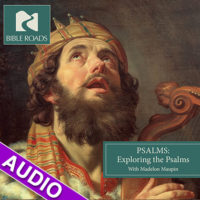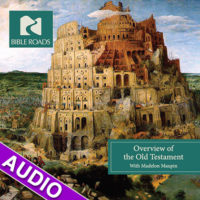A king needs a kingdom. Every child reading fairy tales understands this. The ancient Hebrews grasped it as well. Examining their history–as it unfolds from the Patriarchs, through the Exodus, the settlement of Canaan, the period of the Judges and finally the creation of a monarchy– is a study in kings, prophets and forms of government that are amazingly relevant today.

Now I know that the Lord rescues his anointed king. He will answer him from his holy heaven (Ps. 20:6, NLT)
For a substantial period of the ancient Hebrews’ history, Yahweh was their only King. Having pioneered the discovery of monotheism along with very few other ancient cultures, Yahweh would be their only deity, initially seen more as a tribal deity with some of the same characteristics as other tribal gods (anthropomorphic, sometimes quixotic in actions, etc.).
One of the joys of studying the Hebrew Bible is watching the people’s understanding of Yahweh, or God, grow and expand. Eventually Yahweh is the only God, not just their God. The Psalms capture these growing glimpses of the allness and might of Spirit, the God that is without a form or image, and far more than a super-man, but the all-powerful shepherd, rock, and fortress.
Along the path of the Israelites’ spiritual journey of discovering more of God’s nature is the idea of Yahweh as King. He would govern, direct, fortify, sustain – perform all the roles of a human sovereign who loves his people and takes responsibility for their safety, but so much more.
Eventually the Hebrew tribes felt pressured by the Philistines on their West and the Kingdom of the Ammonites on their Eastern flank, to have a king who would be a military, political and even religious leader. Saul, David and Solomon were representatives of both the best and worst traits of those who held this coveted office.
Simultaneous to the monarchy’s escalation was the rise of the office of prophet, the spiritual seers who would keep the Word of God alive for the people. The men and women Yahweh called to this holy office reminded the people of their covenantal relationship with God and how they must live in obedience to the Law, both individually and collectively as a nation.
At a time when today’s news from the Middle East makes us feel the delicate fabric of coexistence of different religions, tribes and customs is being ripped asunder with unspeakable brutality, it is a good time to take a page from that ancient and contemporary guidebook, The Bible. We can remember that ‘kings’ or governments and their leaders, have always needed their prophets.
Ancient Israel found this combination vital but also knew which office was superior, seen by who did the anointing as well as provided important counsel. As Samuel anointed Saul, as Nathan advised David, as Elijah rebuked King Ahab, as Huldah, the female prophetess, confirmed the importance of the newly found book of Deuteronomy to King Josiah, the prophets of Israel were there to give spiritual counsel, direction and clarification to their heads of state.
The Psalms are a marvelous place to start as we assume the role of modern day prophets through our own prayers for the Middle East and every fractious event around the globe. When reading the Psalms, an easy interpretive path to fall into that needs to be avoided like any undesired pothole, however, is personalizing ‘enemies’ – a common term throughout the Psalter.
As the Hebrews grew in their understanding of God, the ‘enemies’ are increasingly seen not as outward individuals but inward mental derailers. Rather than the geographically warring tribes surrounding them, the Psalmist writers began to reflect on their own willful disobedience, spiritual drift away from prayerful mindfulness of God’s supremacy, and the ego that thinks it knows the right answers over everyone else.
Psalm 18 is a stirring example of how the real ‘enemy’ is subjugated and destroyed when we understand, as the Hebrews learned through countless experiences, that God is always Sovereign. The world needs prophets and the Bible teaches us how.
You gave me victory over my accusers.
You appointed me ruler over nations;
people I don’t even know now serve me.
As soon as they hear of me, they submit;
foreign nations cringe before me.
They all lose their courage
and come trembling from their strongholds.
Ps. 18:43-45 (New Living Translation)




Madelon, I love your phrase “inward mental derailers”. I think we’ve all felt mentally derailed at times. So isn’t it great to know that the voice of reason, of compassion, intelligence, unselfishness, and courage is there for everyone to tune in to and act upon. Whether it’s the “still small voice” heard by Elijah (I Ki 19:12) or the marvelous thundering proclaimed by Elihu to Job (Job 37:4), the voice of truth is right there for us (John 18: 37) and for everyone of every age in all parts of the world, right now, everywhere. “For he satisfieth the longing… Read more »